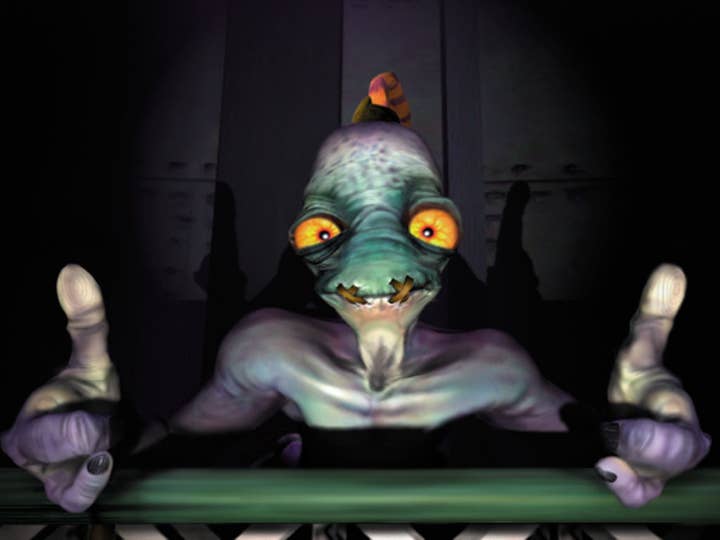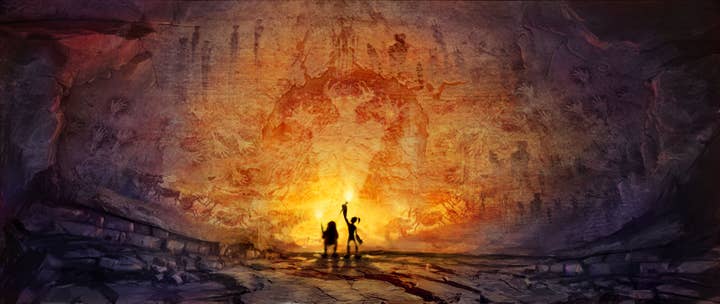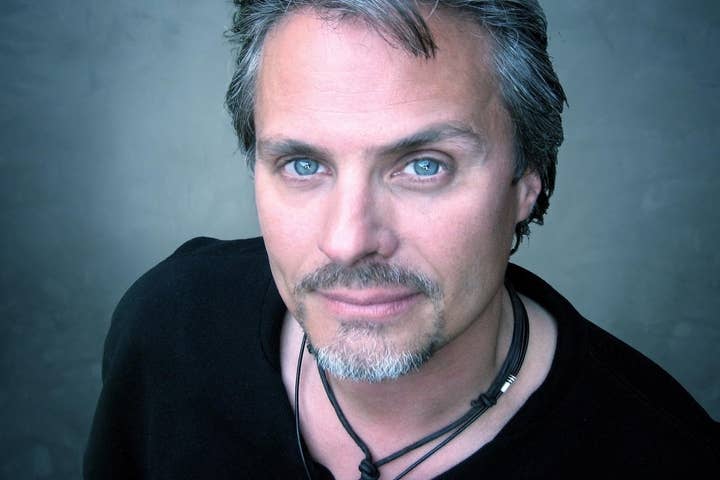Putting shareholders before customers will kill your company
Lorne Lanning on the evils of big business
Oddworld creator Lorne Lanning has never played well with big corporations. In 2005, following a particularly vicious quarrel with Electronic Arts, his studio Oddworld Inhabitants seemed all but dead, taking the beloved franchise with it. Now it's back, and barrelling towards a bright new future. At GDC earlier this year, Lanning was keen to explain to GamesIndustry International his new approach to the business - and why he trusts major publishers less than ever.
"I don't want to be a slave to the big ships, and that's what was happening with AAA, with publishing and with game devs," he explained. "Every game dev that I know that's still doing AAA retail products is trying to figure out a way to get out of it.
"Those deals are just getting worse and worse, even though your expectation of the money is getting higher and higher. Labour's getting more expensive and the rewards are getting smaller. So that's why we decided to stop playing for a while until we could start getting our games up digitally, see if we could build our own business. It's working, it's funding new content."
The success of HD re-releases of Stranger's Wrath and Munch's Oddysee has provided the resources to create a full remake of the original Abe's Oddysee, titled Abe's Oddysee: New 'N' Tasty. Lanning hopes that the sales of this latest offering will, in turn, open up further new opportunities. Ultimately the goal is to get Oddworld Inhabitants to a place where it can create a new AAA IP totally independently.
"We're spending cold cash on this, a couple of million. Not a public company partner. Ourselves. If we lose, we lose big. But if we can get it to that next level where we're spending five or six million on content, we can do a new IP," he said.
"It's not money we're sticking in our pockets, it's money we're leaving in the bank to fund new stuff"
It's the sort of money he doesn't think could be raised through crowd-funding - he's dismissed suggestions that he should run an Oddworld Kickstarter. He's determined to live up to the "AAA expectations" of Oddworld, and he's confident that with a cycle of game releases followed by re-investment in the business, they'll get the funds they need.
"I do think success in the product can raise that money. It's not money we're sticking in our pockets, it's money we're leaving in the bank to fund new stuff," he explained. "It'd be nice to be getting paid again! [laughs] That hasn't been happening for me. It's all going into the product."
For Lanning, going independent doesn't mean going it alone. None of Oddworld Inhabitants' progress so far would have been possible without their partnership with Just Add Water. The small, Yorkshire-based company has been responsible for the development of all three remakes, with Oddworld Inhabitants taking on a supervisory role and handling publishing. Now Lanning is working with a second studio, mobile developer Square One, who will be producing a port of Stranger's Wrath to iOS and Android devices.

"What's nice, working with other indie guys, is that they believe that quality is going to be their lifeline," he said of his partner studios. "These guys are like, 'if we're going to succeed it's because we build really superb quality products'."
The indie community as a whole is something he's keen to embrace. He spoke enthusiastically about cross-promotion plans with developers 17-BIT (Skulls Of The Shogun, Galak-Z: The Dimensional) and Switchblade Monkeys (Secret Ponchos), pointing to an almost union-like spirit of mutual co-operation and support among independent studios. The sort of interactions, he pointed out, that are impossible for studios hitched to major publishers. Among indies, he says, it's not about competition.
"It's funny, because people ask me, for New 'N' Tasty, 'who do you see as your competition out there, what titles?'," he said. "It's interesting, because if you'd have asked me that for an Xbox release it would be a very specific answer and I'd be trying to convince you why we're a better offer for your money. But we're not looking at it that way anymore. We're looking at it like if you like this type of game, and there's another type of game like this, we want to be recommending it to you!"
Of course, Lanning's glowing positivity about the indie community is always framed as a contrast with his misgivings about the past and current actions of major publishers. He pointed to Battlefield 4 as an example of how wrong he feels the developer-publisher relationship can go.
"you know they were devastated when someone made the decision to release that project before it was ready. Because they're smart enough not to do that"
"Why did a title that was so incredible ship prematurely?" he asked. "Now I know, without talking to anyone, if you look at the quality of that title, and if you know how games are built, you know how much hard work went into that, you know how much love and pain and sleepless nights the developers put into it. And you know they were devastated when someone made the decision to release that project before it was ready. Because they're smart enough not to do that."
He speaks from personal experience too; the original release of Abe's Oddysee was criticised for its buggy state, and Lanning places the blame firmly on now-defunct publisher GT Interactive.
"A gold master with all the bugs fixed was in Fed-Ex while someone else made the decision to release a buggy game, because they're in the sales department and they thought 'Hey that's enough time, I don't need to wait til tomorrow, it's good enough'," he recalled. "And then you get stung by the hardcore gamers asking 'why did you f**k this game up?'. I know what a heartbreak that is."
In his eyes, it's the need to impress shareholders taking priority over the need to satisfy customers. "When shareholders are more important than the customers, how long is your business really going to last?" he asks.
"Trust is the most endangered commodity, it's the rarest commodity today"
Lanning points to the level of trust and transparency indie developers have with their audience, and the more direct relationship that creates. It's already affecting the way Oddworld Inhabitants do business in a significant way - following the re-release of Munch's Oddysee, the company polled their audience as to what title they'd like to see developed next. Abe's Oddysee: New 'N' Tasty was the winner. "When creators can go directly to the audience it's a much better existence," said Lanning.
"Trust is the most endangered commodity, it's the rarest commodity today," he pointed out, referring to the lack of trust consumers have in large businesses. Indie developers, he believes, are in a unique position to gain that customer trust, but it takes a leap of faith. It means being honest even when you don't know that things are going to go your way.

"You've got to answer their questions in a sincere way, even if it's not what they want to hear. You have to say 'you know what? You're right, we f****d up like this or we f****d up like that, but this is where we're at, this is why we're doing it, this is what we're trying to achieve," he explains.
For Lanning, however, the benefits are absolutely worth the risk. It's that direct relationship with the fans that has allowed Oddworld Inhabitants to revive itself in the way it has, and will allow it to continue moving forward. Without the resources behind them to do large-scale marketing, they're relying on word-of-mouth to sell units.
As ever, Lanning is supremely confident, convinced that the fans will come through for him. So far, they have, with the two remakes to date generating impressive figures. Strikingly, Stranger's Wrath HD has actually out-sold the original, perhaps finally vindicating Lanning's claims that he was failed by publisher EA's marketing department when it was first released. He's enthusiastic about the future, talking excitedly about potential future projects, even mentioning in passing developing something for VR devices.
"High-end AAA isn't going away, but within 5 years, I think what we're going to see is high-end AAAs competing against indies"
He's also convinced he knows where the industry is headed.
"High-end AAA isn't going away, but within 5 years, I think what we're going to see is high-end AAAs competing against indies. The indies will be rising up," he predicted. "More and more sales will be digital and the retailers are going to have a harder and harder time. Some more retail businesses will go out.
"I think games are just going to continue to get better. You're just going to continue to have a wider variety. It's great that small teams can actually find a viable outlet now and sell the product. And we're right there."
This interview was conducted by Dan Pearson and written up by Robin Valentine.
